Vitamin Protein
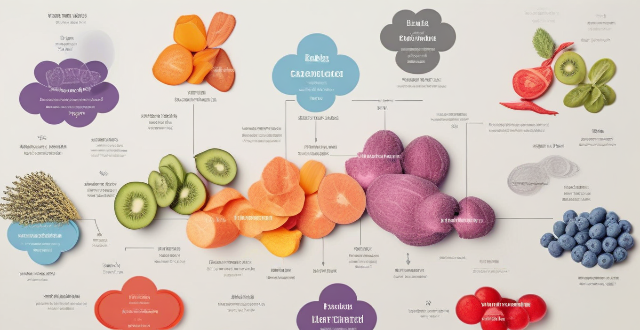
What kind of foods should I eat to aid in muscle recovery
Eating a balanced diet that includes carbohydrates, protein, healthy fats, water, and vitamins and minerals is essential for muscle recovery after exercise. Complex carbohydrates provide energy for muscles during recovery, while protein helps repair and grow them. Healthy fats support overall health and reduce inflammation. Drinking enough water flushes out toxins and maintains a healthy fluid balance in the muscles. Vitamins and minerals, such as vitamin C, vitamin D, and iron, are also important for muscle function and recovery.

How much protein do I need for muscle recovery ?
Protein is vital for muscle recovery, especially after intense workouts. Sedentary adults need 0.8g/kg, while athletes require more. Timing and quality of protein intake matter. Tips include dietary variety, supplementation if needed, meal planning, and monitoring intake.
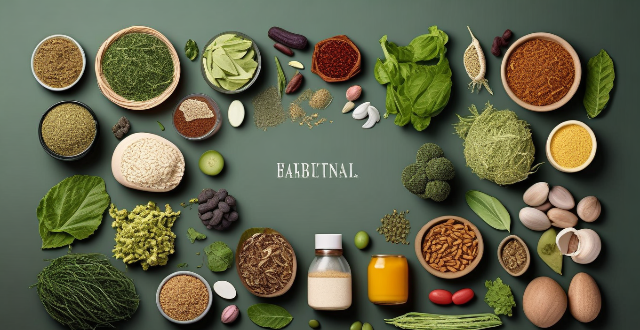
What role does protein play in a healthy diet ?
Protein is an essential nutrient that plays a crucial role in maintaining a healthy diet. It contributes to tissue growth and repair, enzyme and hormone production, immune system function, fluid balance, and energy provision. Consuming a variety of protein sources is important to ensure all necessary amino acids are obtained.

How can I ensure that I'm getting enough protein in my diet ?
Protein is crucial for muscle growth, hormone regulation, and immune support. To ensure you get enough, calculate your needs, choose quality sources like lean meats and legumes, include protein in every meal, snack smartly, read nutrition labels, and consider supplements if needed. Variety and quality are key.

What are the best sources of lean protein for breakfast ?
Including lean protein in your breakfast can help you feel fuller for longer and reduce the likelihood of overeating later in the day. Some of the best sources of lean protein for breakfast include eggs, Greek yogurt, cottage cheese, tofu, nut butters, quinoa, turkey bacon, chia seeds, edamame, and roasted chickpeas. These foods are high in protein and other essential nutrients like calcium, fiber, and healthy fats. They can be prepared in various ways and combined with other ingredients to create a balanced and satisfying breakfast.

How do I balance protein and carbohydrates in my breakfast ?
Balancing protein and carbohydrates in your breakfast is essential for maintaining a healthy diet. Here are some tips on how to achieve this balance: 1. Choose a protein source (e.g. eggs, Greek yogurt, cottage cheese, tofu, nut butter). 2. Add complex carbohydrates (e.g. whole grain bread or toast, oatmeal, fruits, vegetables). 3. Incorporate healthy fats (e.g. avocado, nuts, seeds, olive oil). 4. Consider portion sizes and use measuring cups or a food scale if needed. 5. Plan ahead by prepping ingredients or preparing meals in advance. 6. Be mindful of added sugars and choose whole, unprocessed foods whenever possible.

How can I make my breakfast more protein-packed ?
To make your breakfast more protein-packed, start with a high-protein base like eggs or Greek yogurt. Add nuts and seeds for extra protein and healthy fats. Incorporate legumes such as chickpeas or lentils into savory breakfast dishes. Don't forget dairy products like milk and cheese for added protein. Get creative with grains by combining them with other protein sources like overnight oats with Greek yogurt and nuts. By using these strategies, you can increase the protein content of your morning meals while keeping them interesting and satisfying.
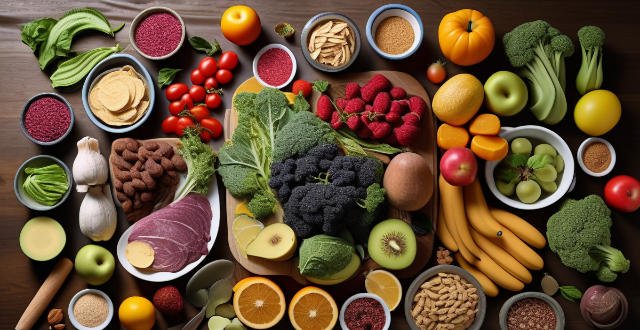
How can I make sure my breakfast is providing enough vitamins and minerals ?
Ensuring your breakfast is packed with essential vitamins and minerals requires incorporating a variety of foods, including whole grains, fruits, vegetables, and proteins. Opt for fortified foods like cereals and plant milks to boost nutritional value. Include a protein source, whether animal or plant-based, and consider what you drink, such as juices and milk. If needed, supplementation can help fill nutrient gaps under professional guidance. Planning ahead through meal prep and weekly menu planning can also ensure a balanced breakfast.

Is it necessary to follow a high-protein diet for strength training
A high-protein diet can be beneficial for strength training, but it is not absolutely necessary as long as enough protein is consumed to support muscle growth and repair. Reasons for a high-protein diet include muscle repair and growth, increased metabolism, satiety, and improved recovery. However, the amount of protein needed varies based on individual factors, and general guidelines for intake during strength training are 0.8-1.2 grams per kilogram of body weight, with a source of protein consumed within 30-60 minutes after a workout. High-quality sources of protein should also be chosen.
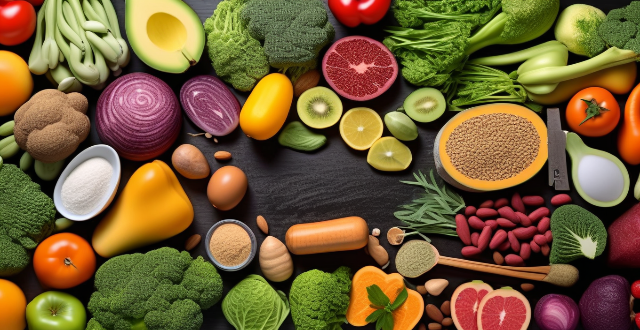
What are the key components of a healthy breakfast ?
A healthy breakfast should include a variety of nutrients to provide energy and support overall health. The key components are whole grains, protein, fruits and vegetables, healthy fats, and dairy or non-dairy alternatives. Whole grains provide complex carbohydrates, fiber, vitamins, and minerals. Protein is important for building and repairing tissues in the body. Fruits and vegetables provide essential vitamins, minerals, antioxidants, and fiber. Healthy fats are important for brain function and hormone regulation. Dairy products or non-dairy alternatives provide calcium, vitamin D, and other important nutrients. Simple combinations like oatmeal with nuts and fruit, a veggie omelette with whole wheat toast, or Greek yogurt with berries and granola can provide all the key components of a balanced breakfast.
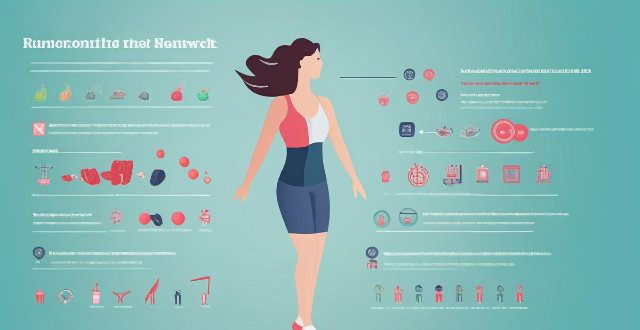
What role does nutrition play in sports injury recovery ?
Nutrition plays a crucial role in sports injury recovery by providing the body with essential nutrients for tissue repair and growth. Protein, vitamins, minerals, and fluids are all important for healing, and proper nutrition can help speed up the process. In addition to nutrition, other factors such as rest, stress management, and physical therapy also play a role in sports injury recovery.
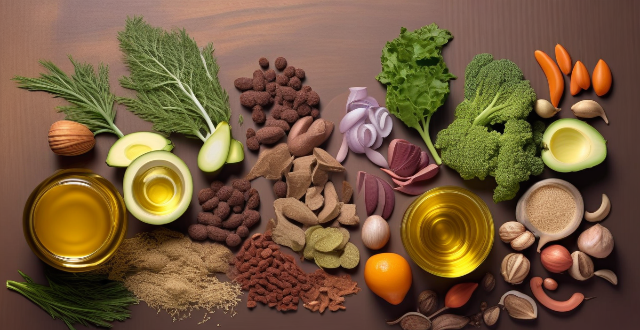
How does a balanced diet contribute to overall well-being ?
A balanced diet is essential for maintaining overall well-being, as it provides the body with the necessary nutrients, vitamins, and minerals required for optimal health and functioning. By consuming a variety of foods in appropriate portions, you can maintain a healthy weight, boost your immune system, support cardiovascular health, enhance brain function and mental health, promote digestive health, and support bone health. Some key nutrients that support these functions include lean protein sources, whole grains, fruits and vegetables rich in vitamins, minerals, and fiber, healthy fats found in nuts, seeds, avocados, and olive oil, omega-3 fatty acids, B vitamins, antioxidants, probiotics, calcium, and vitamin D.

What are some unique and healthy breakfast ideas ?
The given text provides a list of eight unique and healthy breakfast ideas, each offering a combination of nutrients to kickstart the day. Here's a brief summary: 1. **Avocado Toast**: A wholesome blend of whole grain bread, avocado, eggs, tomatoes/cucumbers, and chia seeds for added nutrition. 2. **Overnight Oats**: A mix of oats, almond milk, Greek yogurt, mixed berries, and honey or maple syrup for a sweet and protein-rich start. 3. **Veggie Scramble**: Incorporates various vegetables, turkey bacon, egg whites, and a whole grain wrap for a fiber-rich meal. 4. **Breakfast Quinoa Bowl**: Features quinoa, almond butter, bananas, chopped nuts, and a drizzle of honey for a protein-packed breakfast. 5. **Protein Pancakes**: Made with whole wheat flour, Greek yogurt, blueberries or chocolate chips, maple syrup, and peanut butter for a fun twist on traditional pancakes. 6. **Breakfast Burrito**: Combines a whole wheat tortilla, scrambled eggs, black beans, avocado or salsa, and shredded cheese for a filling meal. 7. **Breakfast Salad**: Includes mixed greens, hard boiled eggs, crumbled bacon, diced tomatoes, and a balsamic vinaigrette dressing for a light yet protein-rich option. 8. **Chia Seed Pudding**: A mixture of chia seeds, coconut milk, fresh fruit, chopped nuts, and dark chocolate shavings for a creamy and indulgent breakfast.

What are the benefits of taking vitamin supplements for women ?
The text discusses the benefits of taking vitamin supplements for women, including improved overall health, better skin health, reduced risk of chronic diseases, boosted immune system function, and improved mental health. It also emphasizes the importance of consulting with a healthcare professional before starting any new supplement regimen.
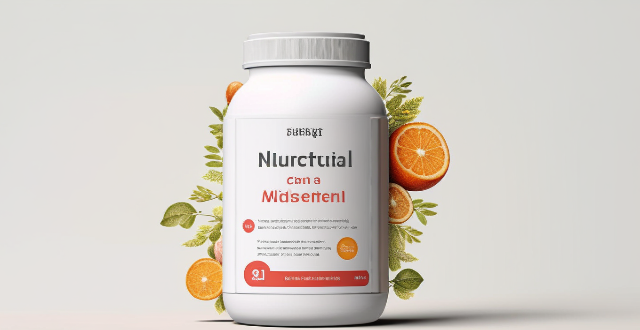
How do sports nutrition supplements affect muscle recovery after a workout ?
Sports nutrition supplements can significantly support muscle recovery post-workout by providing essential nutrients. Protein supplements like whey and casein replenish amino acids, while carbohydrate supplements such as BCAAs and beta-alanine reduce soreness and fatigue. Other nutrients, including creatine, glutamine, and vitamins/minerals, further enhance recovery. A structured supplementation routine, tailored to individual needs, can optimize muscle recovery and athletic performance.

What are some common nutrient deficiencies in women and how can they be addressed ?
The text lists common nutrient deficiencies in women, including iron, calcium, vitamin D, folate, vitamin B12, magnesium, and iodine. For each deficiency, it provides symptoms and solutions such as consuming specific foods or taking supplements.

How should I incorporate sports nutrition supplements into my daily routine for optimal results ?
The text provides a comprehensive guide on how to incorporate sports nutrition supplements into your daily routine for optimal results. It starts with understanding the basics of sports nutrition and assessing individual goals and needs. It then discusses different types of supplements, their timing of intake, and how to incorporate them into various parts of the day. The text emphasizes the importance of monitoring and adjusting supplement use based on personal experiences and advises consulting with a professional for personalized advice.
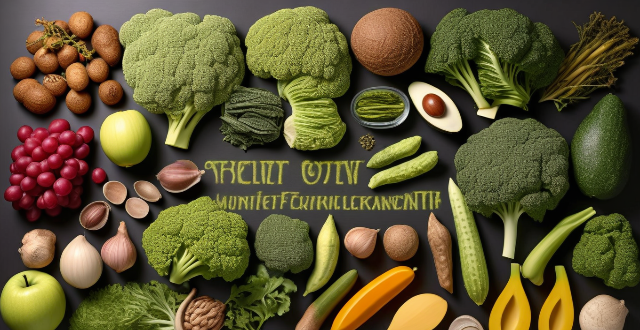
How does a balanced diet impact women's bone health ?
Balanced diet is crucial for women's bone health, including preventing osteoporosis. Key nutrients are calcium, vitamin D, protein, and phosphorus. Fruits and vegetables also support overall well-being.

What are the recommended daily allowances of vitamins and minerals for women ?
Vitamins and minerals are crucial for maintaining good health, and women have specific nutritional needs. The recommended daily allowances (RDA) of vitamins and minerals for adult women include various amounts of vitamins A, C, D, E, K, B-complex vitamins, and minerals such as calcium, iron, magnesium, phosphorus, potassium, zinc, copper, manganese, selenium, iodine, chromium, molybdenum, fluoride, and boron. These values are based on the average requirements of healthy adult women but may differ based on factors such as pregnancy, breastfeeding, age, and overall health. It's best to consult with a healthcare professional or registered dietitian to determine individual nutrient needs.